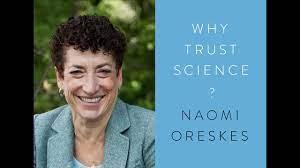
Why Trust Science? — a book by Naomi Oreskes — was reviewed at the Albany Library by Sherrie Lyons, herself a science author.
Ours is the age of science. Yet the book’s title question seems very timely, with burgeoning distrust of things science tells us and produces. Part of a revolt against experts and elites more generally. A perverse result of greater education — making many people imagine themselves smarter than they really are — and an internet spreading information but also a ton of misinformation, often put there with bad motives. Inability to judge who to trust or distrust looms large.
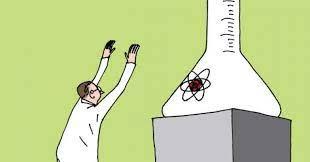
Anti-science stances are not a monopoly of the right, denying realities about Covid, climate, evolution, etc. The left is not immune, with anti-vax hysteria and GMO demonization. And meanwhile “scientism” has long been a rhetorical term of opprobrium, denoting a supposed undue religion-like faith in science as an exclusive source of knowledge, an idea that’s decried.
A key point for Lyons is that scientists are not to be trusted just because they’re “scientists.” They are human, fallible, and can be biased. Rather, what’s to be trusted is science as a collective enterprise, a method for gaining knowledge.
Epistemology concerns how we know things. The reliability of knowledge has always been recognized as a problem. Only gradually, eventually, did the scientific method, as we now understand it, evolve.
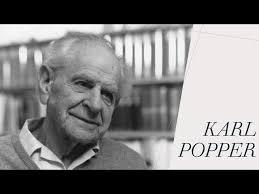
Philosopher Karl Popper put falsifiability at its heart. That means subjecting a thesis to tests capable of disproving it. If no such tests are possible — or if a theory’s proponents rebuff them — then it’s not science. (Generally true regarding religious and other supernatural constructs.)
Lyons noted that actually, what qualifies as evidence in such testing can itself be problematic. She quoted science writer Henry Bauer, that all good theories start out “underdetermined” by anything that can be called facts or evidence. Nevertheless, the key is still facts and evidence being adduced by investigation and experiment, to either confirm a theory or scuttle it.
Thus science is not akin to revelation. It’s a cumulative step-by-step effort, building from observation. Not accepting dogma but always subjecting ideas to scrutiny.
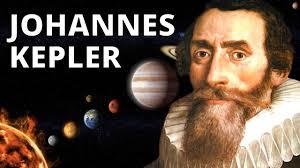
Kepler was an astronomer keen to prove his theory that planets travel in perfect circles. To that end he amassed mountains of data. Whose analysis made him realize he was wrong. Thus he discovered the true laws of planetary motion (in ellipses). Now that’s science.
Lyons emphasized that answers produced by science are never final, but always to be seen as provisional, that is, subject to modification based on further evidence. And central here is the building of a consensus within a broad scientific community — strengthened by diversity within that community, an antidote to groupthink.
Still, a scientific consensus can be wrong. Lyons cited the Earth-centered Ptolemaic model of the Universe, which held sway for many centuries until a better theory — supported by observation — finally dethroned it.
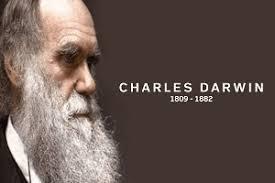
But if you’re hoping a similar Copernican-style revolution will overthrow Darwinian evolution theory, don’t hold your breath. Unlike in Copernicus’s 1500s, any modern scientific consensus rests upon centuries of methodical foundation building. In fact, Darwin’s theory was not “underdetermined” by evidence, but grounded in a vast base of biological knowledge. His using that knowledge to figure out how nature actually works was one of the greatest ever achievements of human intellect. Darwinian evolution theory gets tweaked around the edges by new information, but there’s zero chance it’s fundamentally wrong.
Lyons noted the rich irony of anti-evolutionists sending in their DNA for genetic analysis. Indeed, she observed that nobody is really anti-science in toto. Everyone cheerfully partakes of all modernity’s amenities that are the product of science — monuments to the power of the scientific method. People only reject the bits that somehow conflict with what they wish were true.
Advertisement